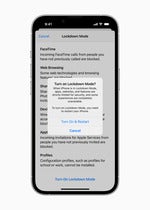Security researchers uncover NSO Group iPhone attacks in Europe

Earlier this week, we saw research showing the noxious NSO Group continues to spy on people’s iPhones in Mexico. Now, Jamf Threat Labs has found additional attacks against human rights activists and journalists in the Middle East and Europe, one of whom worked for a global news agency.
Older iPhones at most risk
The main thrust of the latest research is that while Apple has taken steps to protect devices running the most recent versions of iOS, these attacks are still being made against older iPhones. Jamf warns that the attacks “prove malicious threat actors will exploit any vulnerabilities in an organization’s infrastructure they can get their hands on.”






